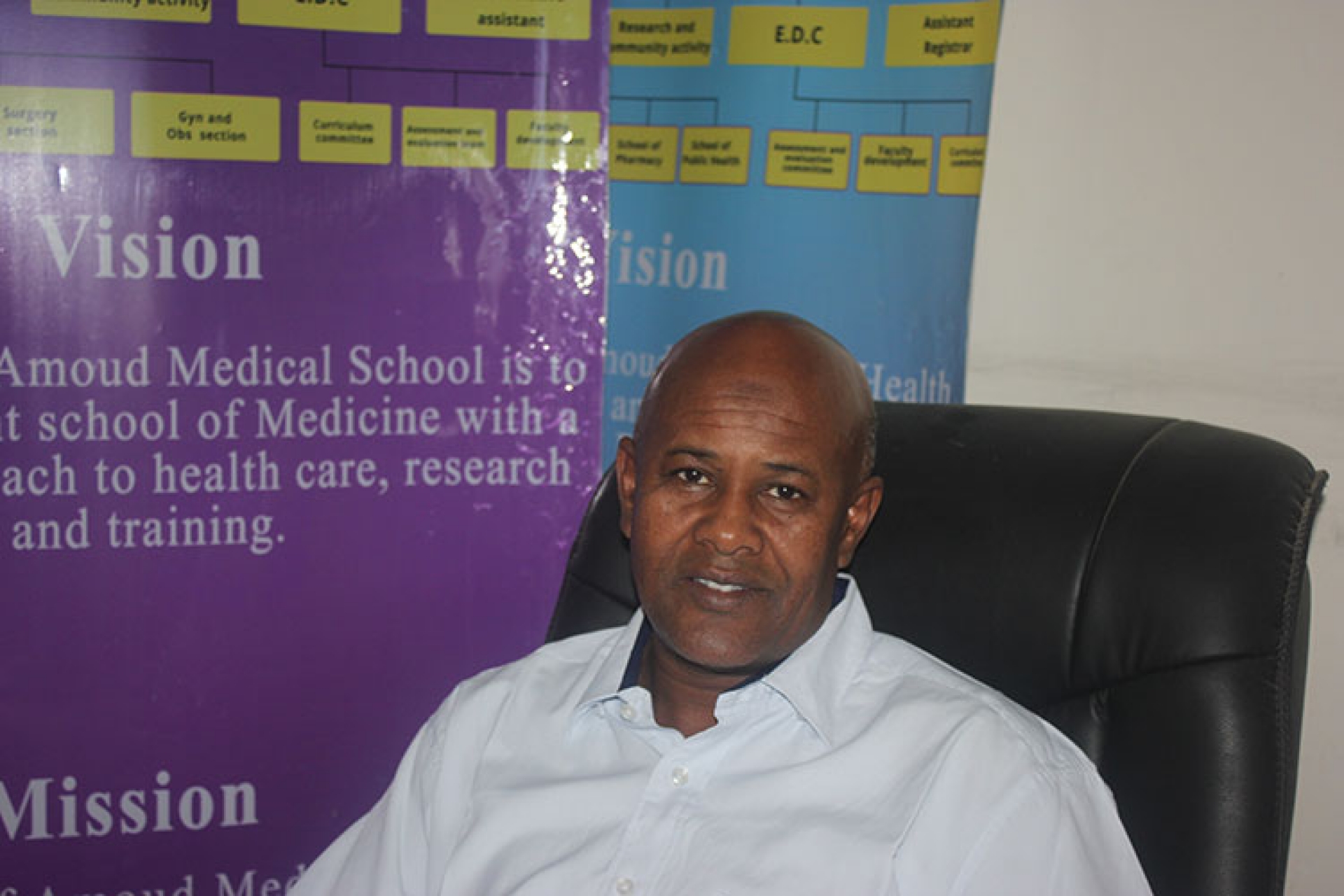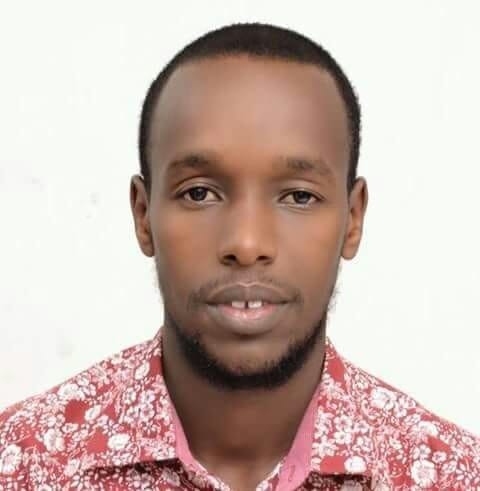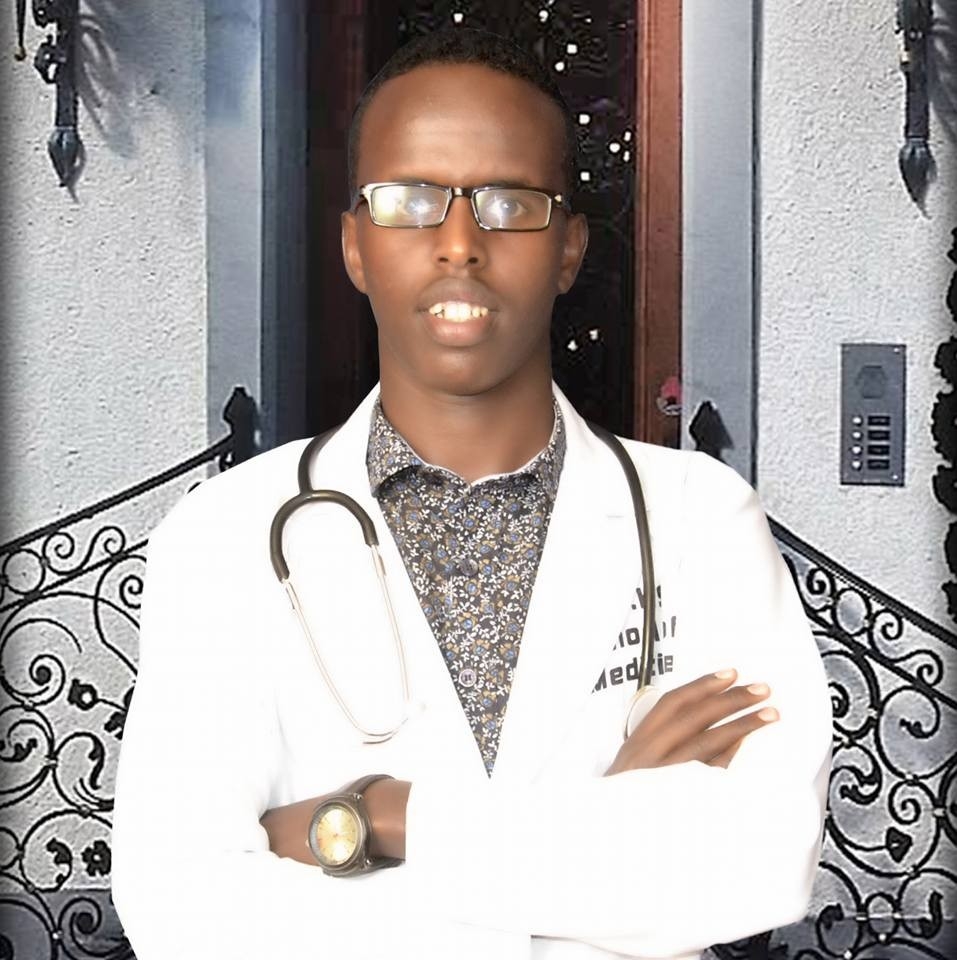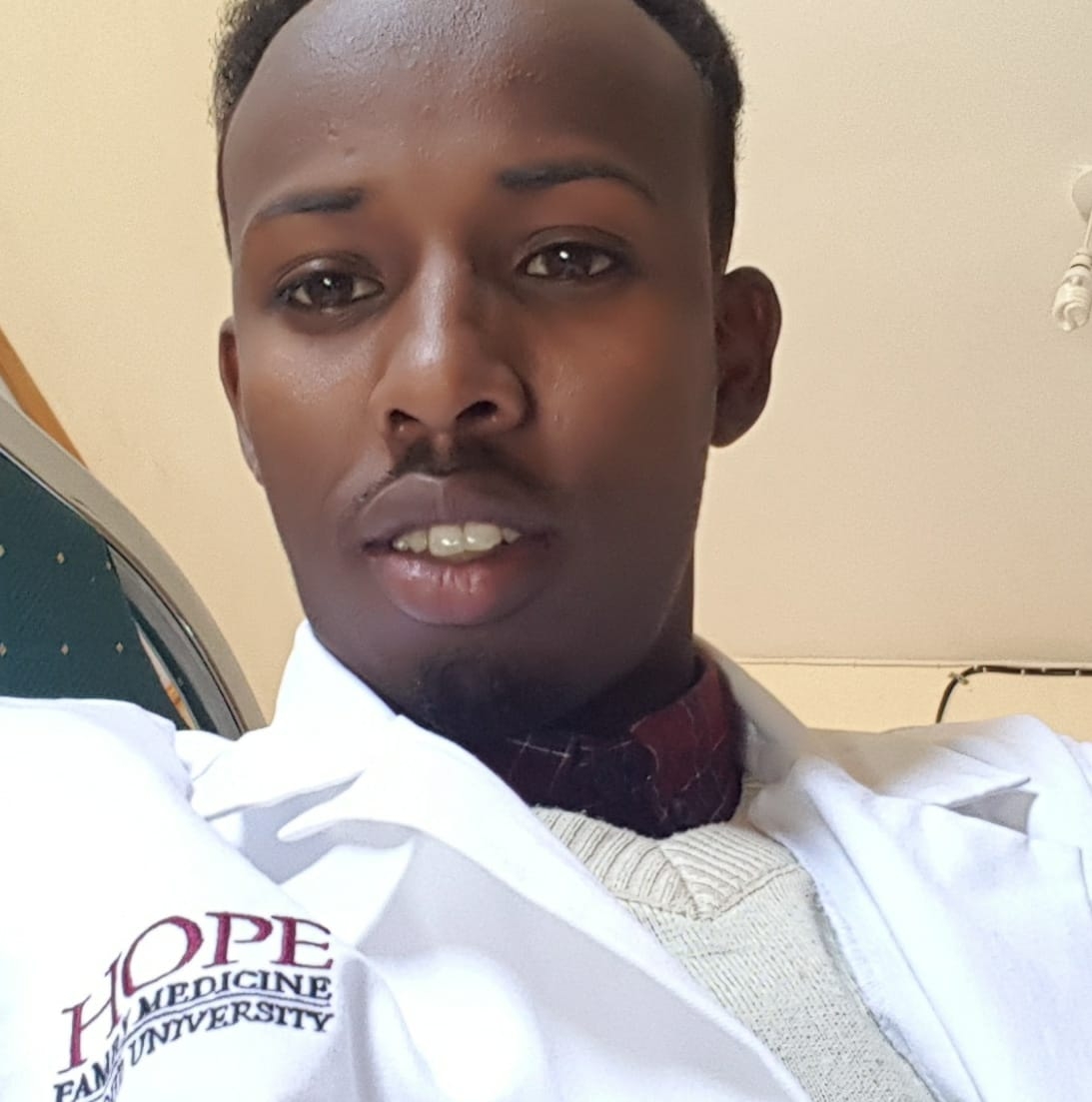Introduction
School of Medicine is one of the schools of Amoud University. It is situated in Borama District, Awdal Region. Amoud Medical School was established in 2000-2001. Its academic program is designed for six years medical education leading to the degree of Bachelor of Medicine and Surgery (MBBS). The school is partnering with King’s College Teaching Hospital of London which provides teaching assistance and Kijaabe Hospital of Nairobi which provides support in the form of dispatching lecturers on periodic-basis to AMS. The school also recruits Somali doctors to help the school in community-based medical education. Special attention is exercised to the quality of medical education through out, starting from admission to graduation. The School’s concept and philosophy necessitates the adherence to valid concepts of education using modern trends and effective methods with flexibility. The curriculum is community –oriented medical education (Learning experience for the students and services for the community with the objectives of giving the students the appropriate skills, attitudes and knowledge in identifying and dealing with the community problems) and uses student-centered approach with emphasis on self-learning to develop in the students the ability and willingness to pursue their own learning after graduation. During the educational program the students come into contact with different communities with different situations to recognize the characteristics of the Somali family, relations, culture, attitude towards health, knowledge and practice in state of health and disease and become familiar with the people they will work for after the completion of their medical studies.
The School of Medicine has started postgraduate studies with family medicine residence at the academic year 2013 which is designed for three years studies leading to Master of Medicine. The Family Medicine Specialist is a generalist physician. The family physician provides care that is comprehensive, extending from birth to death, for men, women and children, covering a broad range of illnesses. The family physician coordinates care among other specialists and non-physician providers, integrating care at various levels of the health system. The Family Medicine Specialist provides holistic care of the whole person, rather than simply disease oriented treatment. Family medicine is community oriented, recognizing the context of the individual in a community impacted by public health issues. The Family Medicine Specialist focuses on the preventive and promotive aspects of care, as well as curative. The Family Medicine Specialist provides care that is continuous over a long period of time, rather than episodic. Finally, family medicine is cost-effective, using limited resources wisely.
As a generalist, the Family Medicine Specialist can function well in a variety of settings, academic or non-academic, rural or urban, private or public, among the rich or poor, in district or provincial hospitals or clinics. However, this curriculum is designed specifically to prepare the Family Medicine Specialist to function in the District Hospital. Upon successful completion of the 3 year training program, Amoud University will grant each graduate a Certificate of Specialization in Family Medicine.
Amoud School of medicine is planned to start the coming academic year 2014-2015, residence in general surgery with the mission to develop and train General Surgeons who are competent to practice Surgery independently. It is designed five year residency training program leading to the master degree of general surgery.
The educational programme will provide a broad educational experience in recognition and treatment of surgical disorders. Upon completion of training, the graduate is expected to be a competent specialist in General Surgery capable of independent practice.
During training, the resident will have acquired a thorough knowledge of the theoretical basis of General Surgery, including its foundations in the basic medical sciences and be exposed to research activities. The graduate will be able to access and apply relevant knowledge and skills to clinical practice and provide effective consultation services with respect to patient care, education and medico-legal issues.
The School is headed by a Dean who acts as the chief officer responsible to the university president, the executive council for the plans and programs of the School and for its day-to-day operations. The Dean is assisted in his duties by an Administrative Assistant and associate dean.
Objectives of the School
To produce highly trained doctors and nurses who will play a great role in the delivery of health care. In order to achieve this objective the School will:
Provide these trainees with the knowledge, skill and attitudes to become competent physicians.
Promote health knowledge through research in all areas related to health care including Basic science, clinical science studies, cultural and behavioral aspects of medical methods for delivering health care and medical education.
Aim at promoting exemplary, primary, secondary and tertiary health care and related community services.
Undertake continuing medical education to maintain and improve the competence of the practicing professional and serve as a medical recourse center (MRC) for health professionals and
Organizations involved in health care.
Participate in the Development and improvement of the quality of health services in the country
Strategy
Most subjects are taught with a variety of methods including lectures, projected materials with lecturers notes presented to the students, practical work and seminars.
- Problem based learning
- Self directed learning
- Group dynamics
- Team work
- Early practical training at all levels of health services (individuals, families and communities)
- Staff training and development
- Criteria for admission
Applicant to this School must have:
- Completed Secondary Education
- Passed the general requirement courses of the freshman year with at least a GPA of 3.5
Student Evaluation
- Student Assessment
- Continuous Evaluation
- Credit Hours
- Utilization of numerous tools of Evaluation.
Curriculum Evaluation
- End of courses student feedback
- Courses coordinators reports
- Yearly Review
Graduation Requirements
The credit hour per semester forms the basis of awarding a Bachelor degree at the faculty. In order to be eligible for the degree, the student must successfully earn a minimum of 280 hours. The duration for completing theses hours is six years, which are divided into the following manner.
- Basic Science Study: two years
- Pre-clinical study: Two years
- Clinical study: Two years
This is followed by an internship of one year in the affiliated hospitals.
CALENDAR YEAR
Calendar Event Beginning Ending
1st Semester 15th September 30th January
2nd Semester 15th September 30th January
Mid-Vocation 1st February 28th February
Summer Vocation 16th July 14th September
Tel 1: +252-63-4455191
Tel 2: +252-63-4456233
Dr. Said A. Walhad, Principal of ACHS
E-mail: This email address is being protected from spambots. You need JavaScript enabled to view it.
Dr. Ismail M. Aaye, Dean School of Medicine
E-mail: This email address is being protected from spambots. You need JavaScript enabled to view it.
School of Medicine
 English
English





